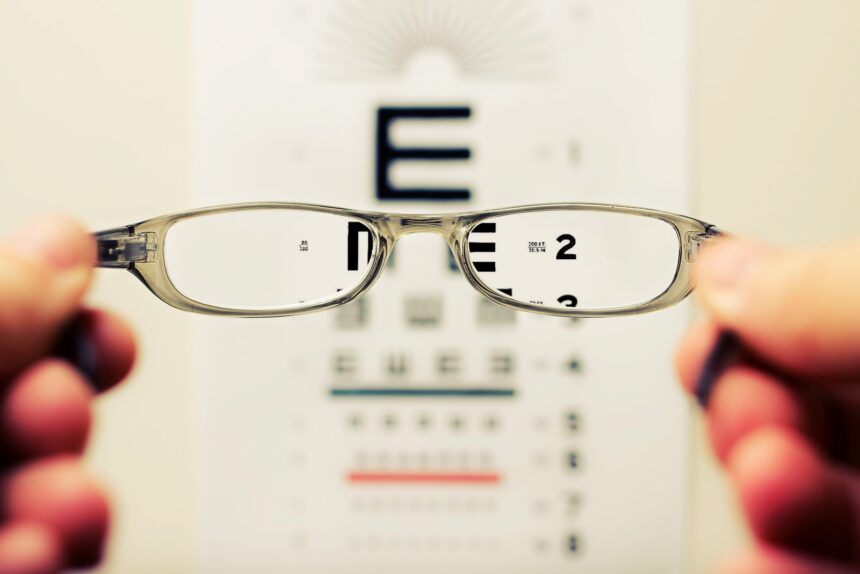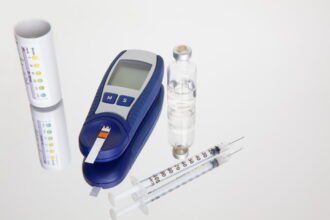In the UK, 59% of the population wear glasses. For many of us, we rely on our specs to improve our eyesight, ensure our safety and the safety of those around us and to also make us feel confident with another accessory to work with.
We wear glasses to drive, work on computers, read or just improve our eyesight generally.
But do our prescription glasses actually improve our eyesight? Well, not in the way you’d think.
Your eyesight is ‘improved’, only while wearing your glasses but they will not fix the root of your problem. Even if you wear your prescription glasses every day for many years, your eyesight and how you see the world would revert back when they are taken off.
Many people have trouble seeing due to the shape of their eye and so their eyesight could only be improved permanently with surgery. Common eyesight problems that can’t be fixed by prescription glasses include:
- Nearsightedness (myopia) – You can see objects that are close to you but struggle to see objects clearly from afar. This is caused by the eyeball being either too long or the cornea is too curved.
- Farsightedness (hyperopia) – You struggle to focus on objects that are close to you but have no problem seeing things that are far away. It’s an eye problem that gets worse with age but it can also be caused by an eyeball that is too short or a flat cornea.
- Age – That’s right, as we get older our eyes aren’t quite what they used to be. This is why many older people need glasses to read or see the TV. It’s caused by the lens in your eye ageing which means you can’t read small words like you used to and need more light to see clearly.
- Astigmatism – This is another common eyesight problem, caused by the cornea being a regular shape – typically described as a rugby ball shape.
These eyesight problems typically lead to distorted and blurry vision that can only be corrected when wearing glasses. They may also cause headaches and eye strain. However, the prescription glasses themselves don’t improve your eyesight, only the likes of laser eye surgery would be able to fix them.
Glasses are there to help you see more clearly, rectify issues and reduce strain on your eyes. Even if your eyesight isn’t too bad without glasses but you need them for things like reading or seeing long distances, you may start to get headaches or sore eyes. It’s also worth considering lens coatings such as blue light reflective coatings, to reduce glare when looking at screens.
Wherever you get your prescription glasses from, be it straight from an optician or an online store such as Spex4less, these won’t fix the cause of the problem. But, they can help you get by day to day. They’ll fix your eyesight while you wear them but they can’t fix your eyes.
Ensure you’re also wearing glasses that are made for your needs. However, it is worth noting that wearing the wrong prescription glasses won’t have a negative effect on your eyes, you just won’t be able to see as clearly.
It’s so important that you have your eyes tested regularly too, at least every two years. If you have diabetes, are aged 70 or over or are over the age of 40 with a history of glaucoma in your family then you may have to see your optician more often.
Some people worry that their glasses affect their eyesight, making them dependent on wearing them. This isn’t the case. Glasses have no physical effect on your eyes and so won’t weaken them or act as the cause for you having to wear them longer or more often. That means you can wear them all day, every day if needs be. But it’s still a good idea to check in with your optician regularly to ensure your prescription is doing all it can to help you see clearly.
Take care of your eyes and remember that your glasses are important but that they cannot fix what’s causing your poor eyesight, just rectify it while they’re being worn. If you want to fix the problem completely, you’ll need to look into surgery.









